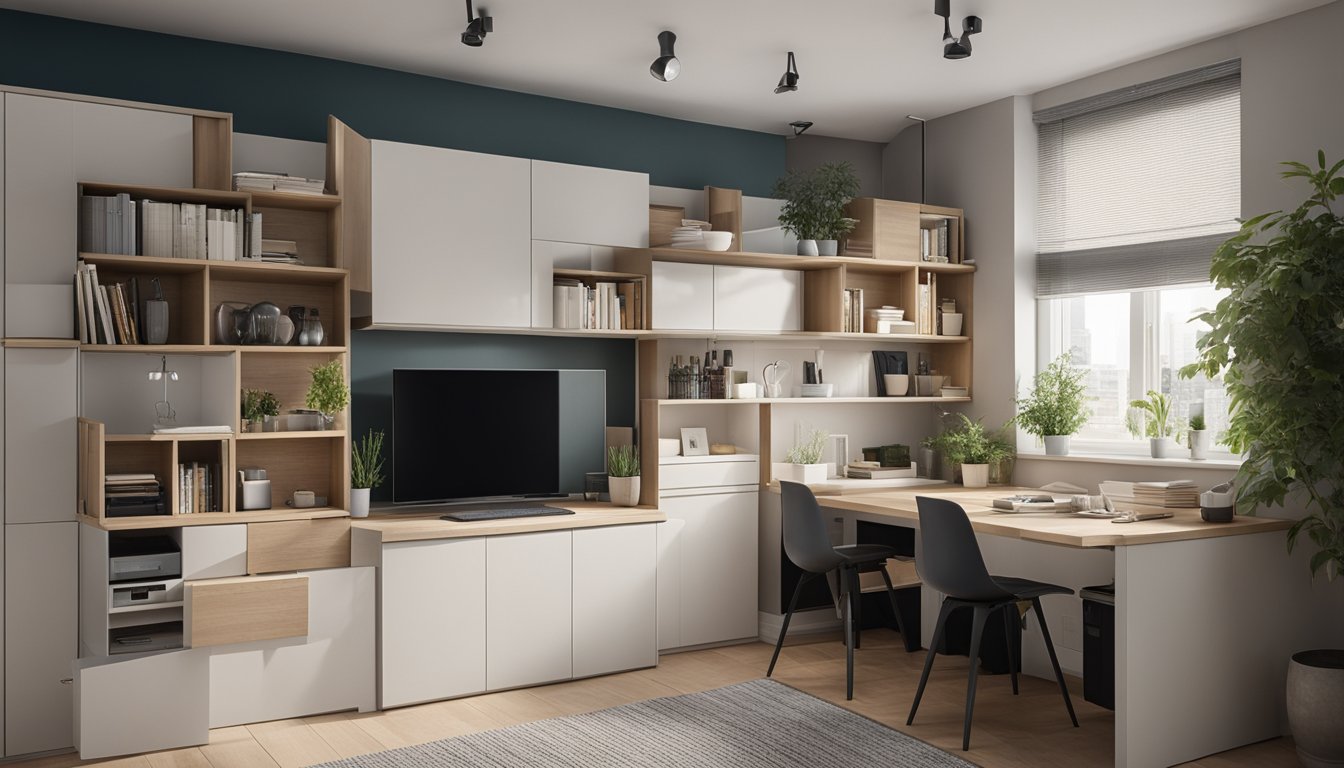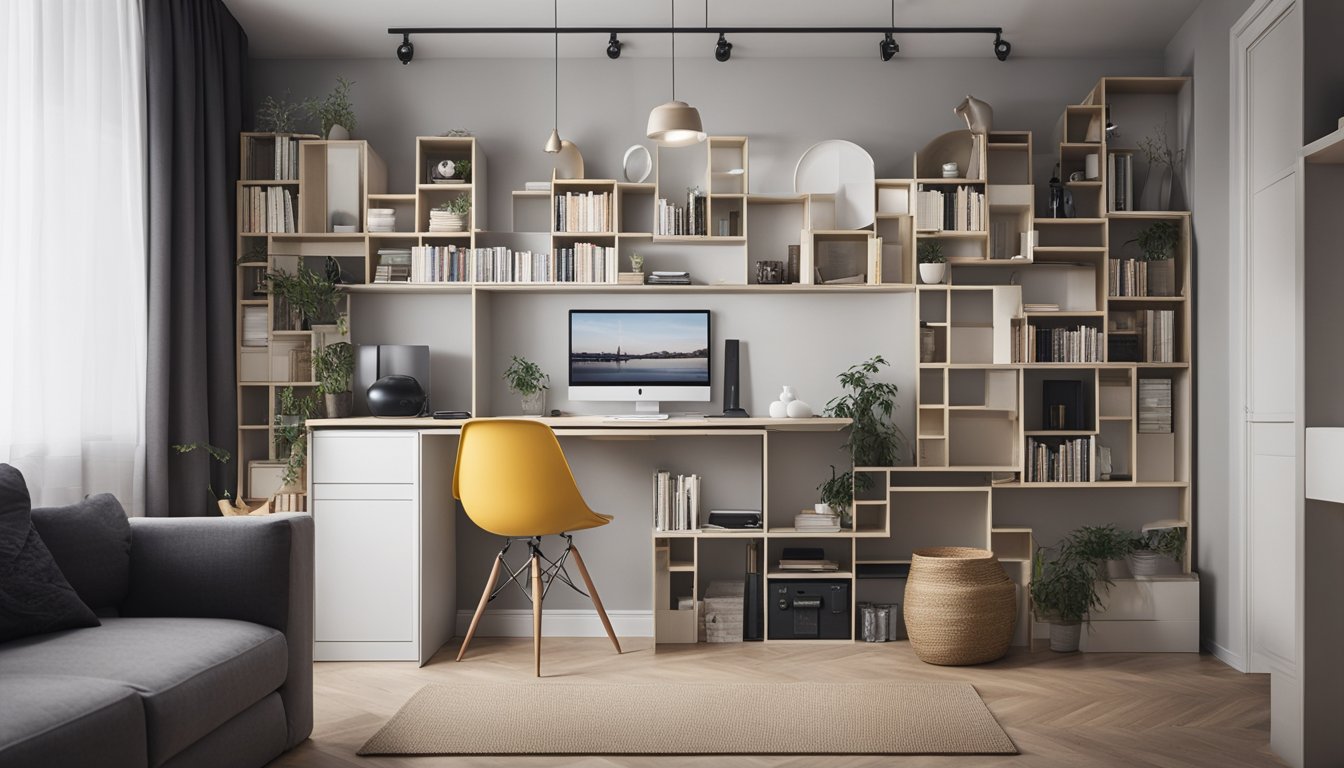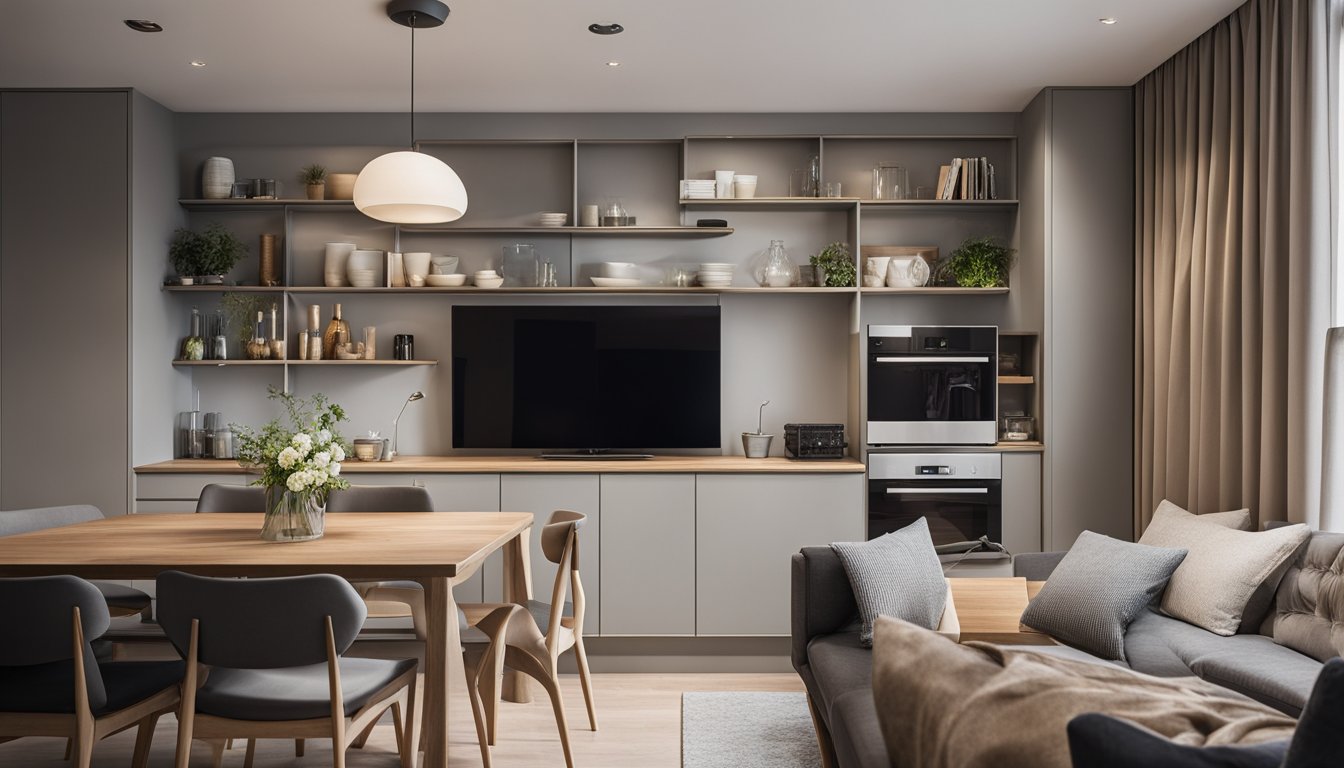Late updated: 13 Jan 2025 12:01
Written by: Daniel Harper
Maximising Space In Small London Flats: Essential Tips and Strategies
Living in London often means facing the challenge of small living spaces. With clever planning and strategic design choices, even the tiniest London flat can feel larger and more functional. Utilising smart storage solutions and efficient furniture layouts can truly maximise the available space, transforming the way we live in urban environments.

By embracing decluttering techniques and being selective about our possessions, we can create a more organised and comfortable living area. Incorporating multi-functional furniture and making the most of vertical and hidden storage options are essential strategies that enhance spatial efficiency.
Balconies and small patios should not be overlooked either, as they can provide additional living space. Adding a small table and chairs can create an inviting spot for dining or relaxation, further complementing our interior efforts.
Key Takeaways
- Optimal storage and layout strategies make small flats more functional
- Decluttering and minimalism create spaciousness
- Multi-functional furniture enhances space efficiency
Strategic Organisation and Decluttering Techniques

Maximising space in small London flats can transform cramped areas into functional, appealing environments. Our techniques focus on implementing efficient storage solutions and decluttering methods that balance style and practicality.
Implementing the Konmari Method
The Konmari Method revolutionises how we declutter our homes. By keeping only items that spark joy, we reduce clutter significantly. This approach prompts us to evaluate our belongings' emotional value. It encourages folding clothes vertically to save space and improve visibility. We systematically sort items by category, not location, allowing us to assess similar items across the home comprehensively. This method helps create a serene, organised space within limited quarters.
Smart Storage Solutions for Everyday Items
Creative storage solutions can greatly enhance functionality in small flats. Under-bed storage maximises unused space, providing a home for items like bedding and seasonal clothing. Wall-mounted shelves offer additional space without consuming floor area. Consider multi-functional furniture, such as storage ottomans or chests that double as coffee tables. Hanging organisers on doors keep personal items accessible yet hidden. Each strategy enhances organisation without sacrificing space efficiency.
Hidden Compartments and Built-In Storage
Integrating hidden compartments and built-in storage enhances space efficiency and aesthetics. Cupboards with hidden shelves or cabinets with pull-out drawers make utility areas more organised. We can transform under-utilised spaces like alcoves or staircases into built-in storage areas. Mirrors with concealed cabinets add depth and practicality to rooms. Exploring unconventional spaces creatively allows flats to retain style while expanding storage capacity. Each hidden spot becomes a smart solution.
Maximising Spatial Efficiency with Furniture and Layout

In small London flats, making the most out of every inch is vital. By selecting multi-functional furniture, optimising layout for compact living, and making smart use of vertical space, we can transform small spaces into efficient, comfortable homes.
Using Multi-Functional and Transformable Furniture
In compact living environments, multi-functional furniture pieces are invaluable. Convertible sofa beds offer seating during the day and transform into sleeping spaces at night. Extendable dining tables allow for hosting without constantly occupying valuable space. Investing in furniture with built-in storage, such as ottomans or beds with drawers, further maximises utility. By choosing versatile pieces, we can ensure that each item serves more than one purpose, enhancing flexibility and maintaining a clutter-free home environment.
Optimising Layout for Compact Living
A strategic furniture layout is essential in micro-apartments. Open plan living encourages fluidity by removing unnecessary partitions, thereby creating a sense of more space. Arranging furniture along walls, rather than in the centre of the room, leaves open pathways, fostering a spacious feel. Zoning different areas, such as using rugs or shelving units, clearly defines spaces without physical barriers. By tailoring the furniture arrangement to the specific needs of our lifestyle, we can craft a more efficient and functional home ambiance.
Utilising Vertical Space and Innovative Renovation Ideas
To get the most out of vertical space, vertical storage solutions like wall-mounted shelves and tall cabinets should be employed. These keep floors clear and utilise often overlooked areas. Mezzanines or loft beds provide extra living or storage areas above existing rooms, a clever tactic in high-ceiling flats. Implementing innovative renovation ideas, such as fold-out desks or wall beds, frees up space when they’re not in use. Thinking vertically ensures that every square foot is purposefully used, making small flats feel significantly larger.
Frequently Asked Questions
Maximising space in London's small flats involves strategic use of vertical storage, choosing furniture with dual functions, and adopting decluttering practices. Colour and lighting also play pivotal roles in creating an expansive feel, while innovative storage solutions cater to compact bedrooms and kitchens. Functional layout enhancements can often be achieved without extensive renovation.
How can I effectively utilise vertical space for storage in a compact flat?
We can make the most of vertical space by installing shelves that reach up to the ceiling. Using tall bookcases and adding storage units above doorways can free up floor space. Hanging organisers and hooks can also be practical additions for items like coats and accessories.
What are the best multi-functional furniture pieces for a small living space?
Selecting furniture that serves more than one purpose is key. Consider sofa beds or daybeds that double as seating and sleeping areas. Coffee tables with storage compartments or nesting tables that can be tucked away are also excellent choices for small flats.
How can I create the illusion of more space with colour and lighting in my flat?
Light colours such as whites and pastels can make a room feel bigger and brighter. Mirrors placed strategically can reflect light and add depth. Incorporating multiple light sources, like lamps and ceiling lights, helps illuminate the space evenly, creating an impression of a larger area.
What are the top decluttering strategies for maintaining a spacious feel in limited living areas?
We should routinely evaluate and purge items we no longer use. Adopting a minimalist approach by keeping surfaces clear and storing belongings in baskets or boxes can help maintain order. Creating dedicated spaces for frequently used items ensures everything has its place.
What innovative storage solutions are recommended for tiny bedrooms and kitchens?
Utilise under-bed storage boxes or drawers for bedrooms. Wall-mounted racks or pegboards can help organise kitchen utensils and pots. In both spaces, employing drawer organisers can maximise utility without clutter.
How can I enhance the functionality of my flat's layout without major renovations?
Consider rearranging furniture to open walkways and define areas more clearly. Using foldable or stackable pieces allows us to adapt the space for different activities. Adding room dividers can help create separate zones without needing to alter the structure.
